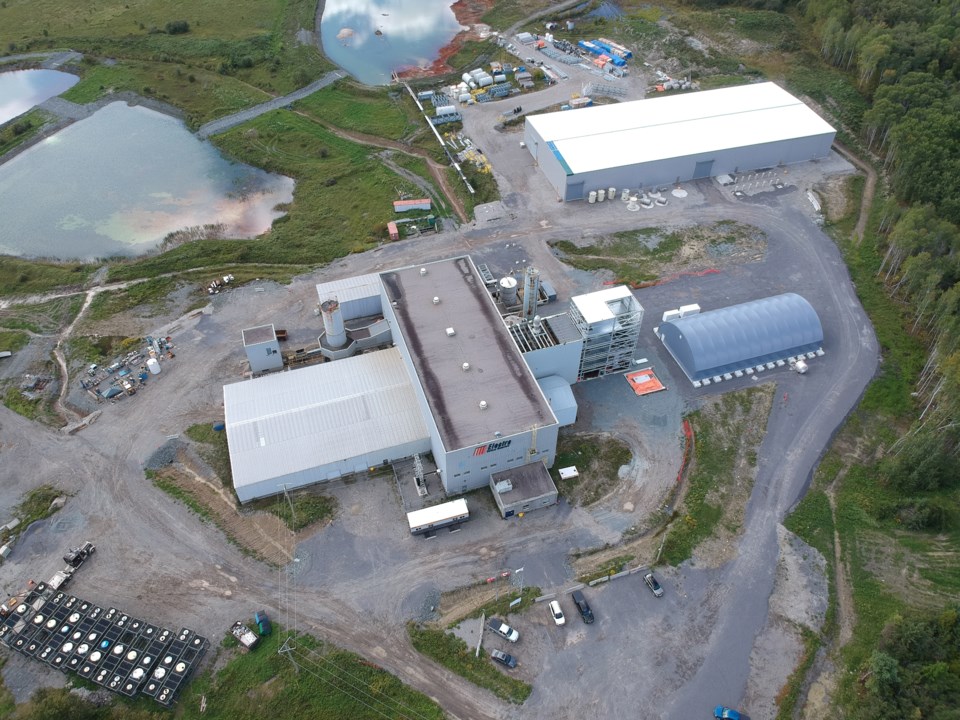Electra Battery Materials estimates it needs between US$55.7 million and $62 million to finish construction of its Temiskaming cobalt refinery.
In a news release, posted a day ahead of its annual shareholders meeting on Oct. 24, the Toronto company said it’s working on a “non-dilutive funding solution” involving government and industry to address this capital shortfall.
There remains a “significant amount of construction work” to finish some building additions at the northeastern Ontario site, the release said.
Since June 2021, Electra has been renovating and expanding an existing refinery between the town of Cobalt and Temiskaming Shores into a cobalt sulfate plant. It would deliver battery-grade material to customers in electric vehicle manufacturing.
After almost two years of supply chain problems, the company said some key pieces of equipment have arrived, such as pressure vessels, tanks and structural steel needed to finish a new solvent extraction plant and crystallizer circuit. But the equipment won’t be installed until funding arrives.
In a statement, CEO Trent Mell said they are also pursuing US$10.9 million in previously committed government funding.
Electra did not provide a date on when the cobalt sulfate refinery would be in operation. But they’ll have to be ready by 2025. That’s when Electra’s supply agreement kicks in with LG Energy Solution, a leading lithium-ion battery manufacturer.
Electra is obligated to provide LG with 19,000 tonnes of cobalt sulfate over a five-year term, amounting to 80 per cent of Electra’s annual production.
When finished, the cobalt refinery will be capable of scaling up to produce 6,500 tonnes of cobalt sulfate a year.
Electra has high hopes of building out a larger battery material industrial park in Temiskaming, capable producing processed nickel and manganese for downstream customers.
Want to read more stories about business in the North? Subscribe to our newsletter.
While construction is at a standstill, the company is still pressing ahead with its black mass recycling trial.
Black mass is the valuable, mineral-enriched material recovered from waste batteries. From its own proprietary process, Electra can recover lithium, nickel, cobalt, manganese, graphite and copper. Some batches from this trial have already been shipped off to customers.
To provide black mass for the Temiskaming refinery, Mell said talks continue with the Three Fires Group, an Indigenous economic development entity, on building a waste battery shredding facility in southern Ontario.
Electra is also entertaining an offer to set up a second cobalt refinery in Becancour, Que.
Known as “Battery Valley,” the federal and Quebec governments are investing hundreds of millions of dollars into the St. Lawrence River port city to attract industry heavyweights, such as Ford and Vale, to develop an industrial complex for electric vehicle battery manufacturing.
Electra comes out with a pre-feasibility study in the first half of 2024 on possibly setting up shop there.




